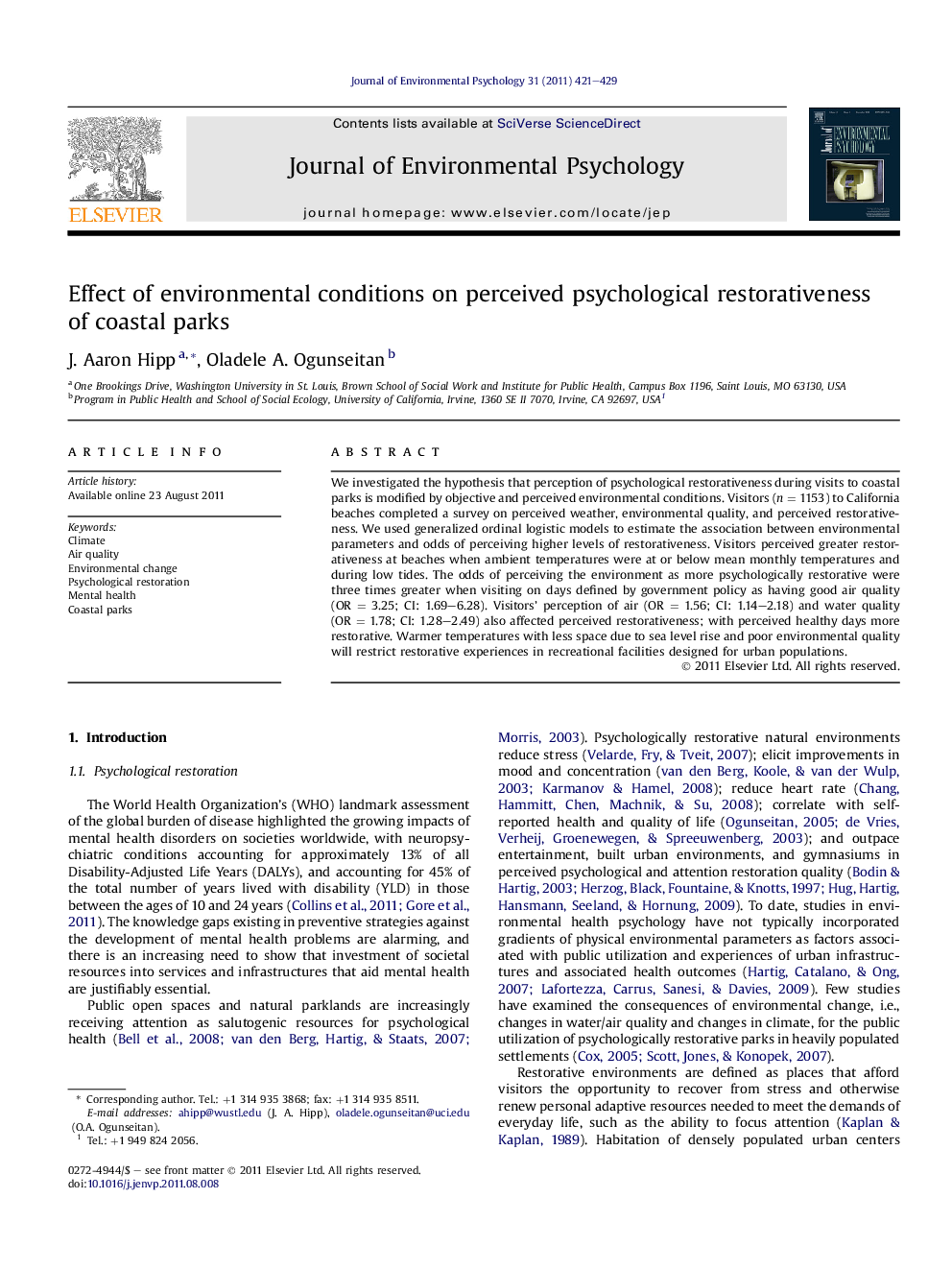| Article ID | Journal | Published Year | Pages | File Type |
|---|---|---|---|---|
| 885671 | Journal of Environmental Psychology | 2011 | 9 Pages |
We investigated the hypothesis that perception of psychological restorativeness during visits to coastal parks is modified by objective and perceived environmental conditions. Visitors (n = 1153) to California beaches completed a survey on perceived weather, environmental quality, and perceived restorativeness. We used generalized ordinal logistic models to estimate the association between environmental parameters and odds of perceiving higher levels of restorativeness. Visitors perceived greater restorativeness at beaches when ambient temperatures were at or below mean monthly temperatures and during low tides. The odds of perceiving the environment as more psychologically restorative were three times greater when visiting on days defined by government policy as having good air quality (OR = 3.25; CI: 1.69–6.28). Visitors’ perception of air (OR = 1.56; CI: 1.14–2.18) and water quality (OR = 1.78; CI: 1.28–2.49) also affected perceived restorativeness; with perceived healthy days more restorative. Warmer temperatures with less space due to sea level rise and poor environmental quality will restrict restorative experiences in recreational facilities designed for urban populations.
► Visitor experience within coastal parks is associated with weather and environmental parameters. ► The perceived psychological and attention restoration provided by a coastal park is influenced by air and water quality. ► Perceived restorativeness is significantly constrained on days with temperatures above the monthly average. ► Perceived restorativeness is significantly constrained during high tides, a proxy for sea living rise and beach crowding. ► Constraints in visitor experience to urban parks and recreational infrastructure could exacerbate psychological maladies.
